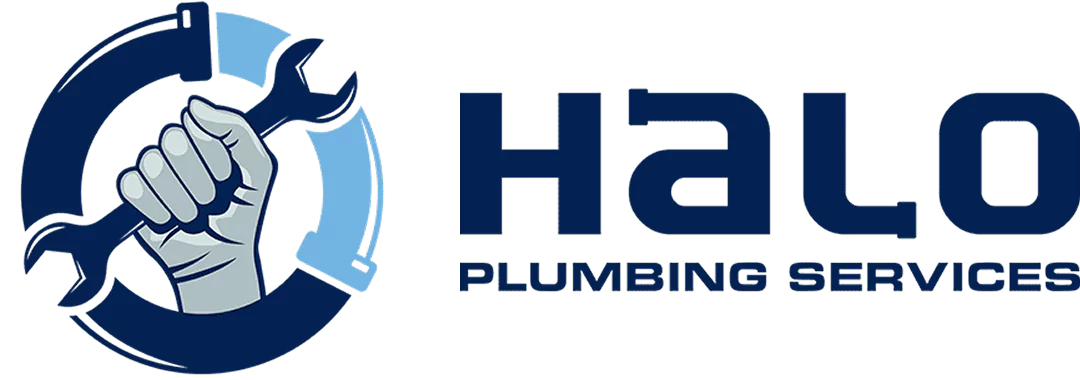Preventative Maintenance Tips for Commercial Plumbing
As a commercial property owner or manager, you understand the importance of keeping your plumbing system in top shape. A single issue can lead to costly repairs, downtime, and even health hazards. But with a proactive approach, you can avoid these problems and ensure your plumbing infrastructure runs smoothly and efficiently. By following a few simple yet crucial preventative maintenance tips, you can identify potential issues early. In addition, prevent water wastage, and protect the water supply from contamination. In this post, we’ll walk you through the crucial steps to take control of your commercial plumbing. Furthermore, save yourself from unnecessary headaches and expenses.
Regular Inspections
A crucial aspect of preventative maintenance for commercial plumbing is regular inspections. By scheduling routine checks, you can identify potential issues before they become major problems. Therefore, saving your business time and money in the long run.
Identifying Potential Issues Early
One of the primary benefits of regular inspections is the ability to detect potential problems before they cause significant damage. By catching leaks, corrosion, or wear and tear early, you can address these issues quickly and efficiently. Therefore, minimizing downtime and reducing the risk of costly repairs.
Common Problems to Look Out for
To ensure your commercial plumbing system remains in optimal condition, it’s imperative to be aware of problems that can arise. Look out for signs of leaks, corrosion, or mineral buildup. In addition, faulty fixtures, clogged drains, and malfunctioning backflow prevention devices.
A thorough inspection should include a review of your plumbing system’s entire infrastructure. Everything from pipes and fixtures to appliances and water-using devices. Pay particular attention to areas prone to moisture accumulation. For example, bathrooms and kitchens, where leaks and corrosion are more likely to occur. By being proactive and addressing these issues promptly, you can prevent minor problems from escalating into major crises that disrupt your business operations.
Drain Maintenance
One of the most critical aspects of commercial plumbing maintenance is ensuring your drains are functioning properly. Clogged drains can lead to costly repairs, downtime, and even health hazards.
Scheduling Routine Drain Cleaning
Drain cleaning should be a regular part of your maintenance routine. You should schedule drain cleaning every 1-3 months, depending on the usage and traffic in your commercial space. This will help prevent blockages and maintain efficient water flow, reducing the risk of backups and floods.
Preventing Blockages and Maintaining Efficient Water Flow
Maintaining clear drains is crucial to preventing blockages and maintaining efficient water flow. You can do this by being mindful of what goes down your drains. Therefore, avoiding pouring grease, food waste, and other debris down the pipes.
Water flow is crucial to the proper functioning of your commercial plumbing system. When water flows freely, it helps to prevent the buildup of sediment and debris, which can lead to clogs and blockages. By maintaining efficient water flow, you can reduce the risk of costly repairs and downtime. As a result, ensuring your business remains operational and profitable.
Fixture Maintenance
Any commercial plumbing system relies heavily on its fixtures, such as faucets, toilets, and sinks, to function efficiently. Regular maintenance of these fixtures is crucial to prevent water wastage, damage, and costly repairs.
Ensuring Correct Functionality of Faucets and Toilets
For optimal performance, inspect your faucets and toilets regularly to ensure they are functioning correctly. Check for leaks, worn-out washers, and proper flushing mechanisms. Make adjustments or replacements as needed to prevent water wastage and maintain a smooth operation.
Avoiding Water Wastage and Damage
For a water-efficient and damage-free plumbing system, ensure that all fixtures are installed correctly and functioning as intended. A single dripping faucet can waste up to 20 gallons of water per day. Moreover, a malfunctioning toilet can cause significant water damage and disrupt business operations.
A thorough inspection of your fixtures can help identify potential issues before they become major problems. Look for signs of wear and tear, corrosion, or mineral buildup, and address them promptly. By doing so, you can prevent water wastage, reduce your water bill, and minimize the risk of costly repairs and downtime. Regular fixture maintenance is a simple yet effective way to ensure your commercial plumbing system operates at its best.
Backflow Prevention
To ensure the safety and integrity of your commercial plumbing system, backflow prevention is a critical aspect of preventative maintenance.
Testing Devices Annually
Backflow devices must be tested annually to ensure they are functioning correctly. You should hire a certified plumber to perform this test, which involves simulating a backflow condition to verify the device’s ability to prevent contaminated water from entering the potable water supply.
Protecting the Water Supply from Contamination
From cross-connections to backflow incidents, there are many ways your water supply can become contaminated. You must take proactive measures to prevent these occurrences and ensure the safety of your customers and employees.
Annually, inspect your plumbing system for any potential cross-connections, which can occur when a potable water supply line is connected to a non-potable source, such as a sewer or drain line. Additionally, ensure that all backflow prevention devices are installed and functioning correctly. By taking these precautions, you can significantly reduce the risk of waterborne illnesses and maintain a safe and healthy environment for your business.
Staff Education and Training
Despite the importance of regular inspections and maintenance, your commercial plumbing system is only as good as the people using it. Educating your staff on proper usage and maintenance practices can make a significant difference in preventing costly repairs and downtime.
Proper Usage and Maintenance Practices
Practices such as turning off taps when not in use, reporting leaks promptly, and avoiding harsh chemicals can go a long way in extending the life of your plumbing system. By educating your staff on these simple yet effective practices, you can prevent unnecessary wear and tear on your pipes and fixtures.
Minimizing Damage and Ensuring Optimal Condition
Education is key to minimizing damage and ensuring your plumbing system remains in optimal condition. By training your staff on how to identify potential issues and take corrective action, you can prevent minor problems from becoming major headaches.
Proper training can also empower your staff to take proactive measures to prevent clogs, corrosion, and other common plumbing issues. For instance, teaching your staff how to properly clean drains and dispose of waste can prevent blockages and maintain efficient water flow. By investing in staff education and training, you can ensure your commercial plumbing system runs smoothly and efficiently, reducing the risk of costly repairs and downtime.
Additional Tips for Commercial Plumbing Maintenance
Keep your commercial plumbing system running smoothly by following these additional tips:
- Label shut-off valves and water supply lines to ensure easy identification in case of an emergency.
- Install strainers or filters on drains to catch debris and prevent clogs.
- Use a water-efficient toilet and faucet to reduce water consumption and lower utility bills.
- Consider installing a water leak detection system to alert you of potential issues before
they become major problems.
After implementing these tips, you’ll be well on your way to preventing costly repairs and maintaining a reliable commercial plumbing system.
Monitoring Water Pressure and Flow Rate
On a regular basis, check your water pressure and flow rate to ensure they are within the recommended range for your plumbing system. This will help prevent damage to pipes and fixtures, and ensure efficient water distribution throughout your facility.
Performing Regular Water Heater Maintenance
On a regular schedule, inspect your water heater for signs of corrosion, leaks, or wear and tear. Check the temperature and pressure relief valve to ensure it’s functioning correctly.
Plus, consider flushing your water heater annually to remove sediment and mineral buildup, which can improve its efficiency and extend its lifespan.
Keeping Records of Maintenance and Repairs
Performing regular maintenance and repairs is crucial, but it’s equally important to keep accurate records of these activities. This will help you track your plumbing system’s performance, identify potential issues, and plan for future maintenance and upgrades.
Repairs and maintenance records can also serve as valuable documentation in case of an insurance claim or compliance audit. Make sure to include details such as the date, description, and cost of each maintenance activity, as well as any parts replaced or repaired.
Summing up
Presently, you’re well-equipped to safeguard your commercial plumbing system from unexpected breakdowns and costly repairs. By incorporating these preventative maintenance tips into your routine, you’ll be able to identify and address potential issues before they escalate, ensuring your plumbing infrastructure remains in top condition. Keep in mind, regular inspections, drain cleaning, fixture maintenance, backflow prevention, and staff education are key to minimizing downtime and maximizing efficiency. With these simple yet effective measures, you’ll be able to enjoy a reliable and long-lasting commercial plumbing system.

